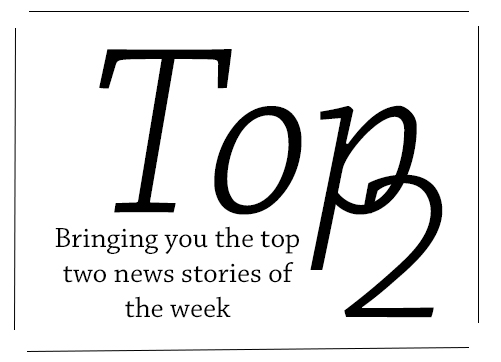Impeachment inquiry underway, disinformation campaigns continue to grow

Catherine Jackson and Renee Watters
Publishing every Friday, “The Top 2” recaps the two most notable and important stories from the week (Saturday-Thursday). Assistant Editor Ryan Stanley covers topics ranging from issues in the U.S. to problems worldwide. For more information on stories, refer to the embedded links within the article.
1. An Impeachment inquiry into President Donald Trump was announced Tuesday by House Speaker Nancy Pelosi in response to a whistleblower complaint that raised concern over a phone call between President Trump and President Zelensky of Ukraine. During the call, President Trump urged the Ukrainian leader to investigate former Vice President Joe Biden and his son Hunter Biden for their activities in Ukraine years prior. The whistleblower, who is a C.I.A. officer, said White House officials attempted to lock down records of the call, which led to Democrats calling the action a cover-up.
.@realDonaldTrump has been engaged in a cover-up all along. Why else would he have blocked the release of the #WhistleblowerComplaint? #ExposeTheTruth
— Nancy Pelosi (@SpeakerPelosi) 26 września 2019
A whistleblower with second hand information? Another Fake News Story! See what was said on the very nice, no pressure, call. Another Witch Hunt!
— Donald J. Trump (@realDonaldTrump) 26 września 2019
Why this matters
While there is a long process, an impeachment inquiry is the first step towards articles of impeachment. President Trump is faced with allegations of breaking federal election campaign laws, which prohibit foreign aid in an election. The Department of Justice argues no violation occurred, but the decision is ultimately left up to Congress.
2. Disinformation campaigns used to spread propaganda, attack political opponents and create divisions within society have increased by 150 percent over the last two years according to a study released by The University of Oxford. The number of countries with disinformation campaigns has now reached 70, while in 2017 there were only 28. Facebook is the No. 1 platform used in the spread of disinformation.
Why this matters
During the 2016 presidential election, Facebook and other social media outlets displayed ads that spread disinformation and influenced voters. With the upcoming 2020 election and the newfound impeachment inquiry, false information will continue to spread. Depending on age, current high school seniors and older juniors can vote in the 2020 election, and they likely will see a disinformation ad.
Your donation will support the student journalists of Prosper High School. Your contribution will allow us to purchase equipment and cover our annual website hosting costs.













